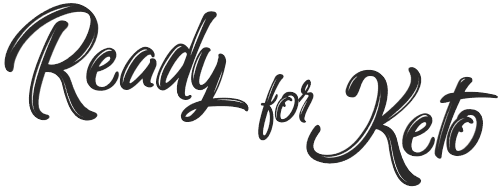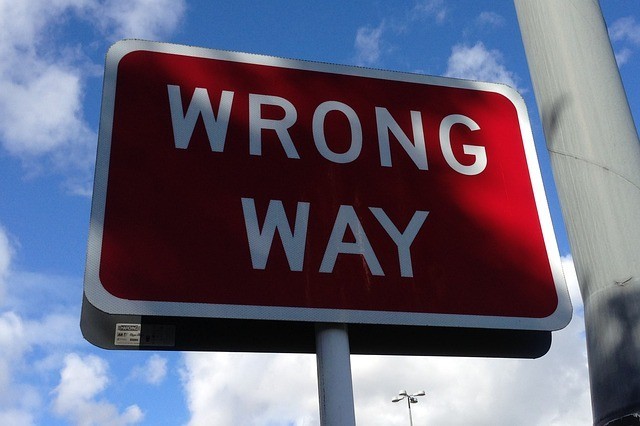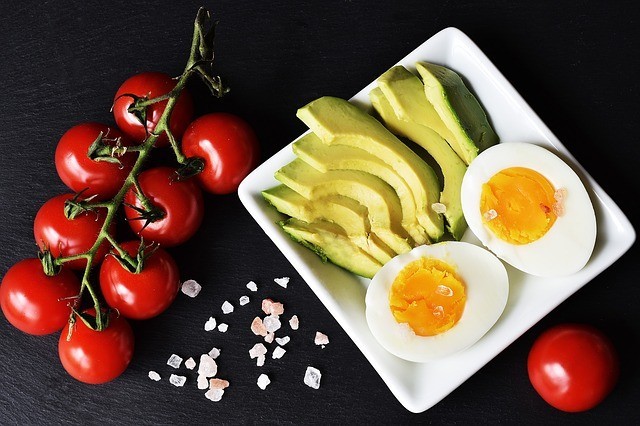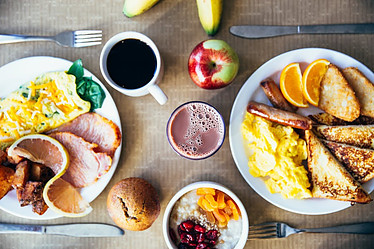Does the consumption of bacon, meat, and butter during a keto diet increase cholesterol levels? Learn why keto and cholesterol are not as interconnected as you might think.
Keto Diet for Cholesterol: Will a Keto Diet Raise Cholesterol?
How can a diet rich in butter, red meat, cheese, eggs, and bacon not raise cholesterol levels?
It’s like saying that eating a whole pack of ice cream won’t raise blood sugar levels, right? Far from it.
As it turns out, the combination of keto and cholesterol may actually be a good thing.
A low-carbohydrate diet like the keto diet will change your fat profile – but maybe not in the way you’d expect.
This article will answer your questions with scientifically based evidence on how starting a keto diet can help you lose weight and feel more energetic without raising your cholesterol levels.
If you already know how cholesterol levels in your body work, you might see the ketogenic diet in a whole new light. You may also need to rethink everything you thought you knew about cholesterol.
PIN
What is Cholesterol?
Before we go any further: What is cholesterol?
Cholesterol is a waxy substance that is only produced by animals and humans. Vegetable foods such as fruit and vegetables are cholesterol-free.
When scientists first studied the human heart and found a link between hardened, clogged arteries and an increase in heart attacks, cardiovascular disease, strokes, and other cardiovascular risk factors such as high blood pressure, overweight, and an increase in body fat, they blamed cholesterol.
Why? Because they found that the cholesterol built up plaque.
They said that eating high cholesterol foods would then lead to high cholesterol levels.
This original theory made sense.
However, this is not an accurate picture of how cholesterol really works. In fact, many studies that link dietary cholesterol and high cholesterol levels to an increased risk of heart disease have now been disproved.
Why Doesn’t the Consumption of Cholesterol Increase the Cholesterol Level?
When people talk about cholesterol, they usually refer to your lipid profile or the fatty acids in your blood (measured in a lipid panel).
Cholesterol is responsible for everything from building hormones (such as estrogen and testosterone), strengthening cell membranes, and transporting vitamins to helping you absorb all the nutrients in your diet.
Many people do not know that the body can produce all the cholesterol it needs to function. Most of the cholesterol is produced by the body itself, a smaller part comes from food.
Even then, most of the cholesterol in food can’t be used by the body and therefore leaves the body as waste.
How Your Body Maintains Cholesterol Levels
A high cholesterol diet has almost no effect on your cholesterol level because your body is smarter than you think.
Because it is such an important producer of cholesterol, your body works hard to make sure that your cholesterol level is in a constant balance all by itself (this is called cholesterol homeostasis).
When there is too much cholesterol, your body slows down production, too little cholesterol in your diet, and your body continues to drive production.
So if cholesterol is not a high risk and foods with high cholesterol levels do not accumulate in your arteries, what causes plaque to form? Let’s break it down…
“Good” and “Bad” Cholesterol
You have probably heard of so-called “good cholesterol” and “bad cholesterol” types, but these references are not entirely accurate.
Unlike sugar and salt, which can get mixed up in your bloodstream, cholesterol is a fat, so it does not mix well with the watery nature of your blood. For cholesterol to work through your body, it must pass through vessels known as lipoproteins.
As the name suggests, they consist partly of fat (lipo) and partly of protein. Their sole function is to transport cholesterol to the cells and organs that need it most.
There are five different types of lipoproteins, but the ones you hear about all the time are the low-density lipoprotein (LDL), which is often called “bad” cholesterol, and the high-density lipoprotein (HDL), which is called “good” cholesterol.
To put it clearly: HDL and LDL are not actual types of cholesterol – only what transports cholesterol.
So what is the difference between these two?
High Density Lipoprotein (HDL): The Good
HDL particles are produced in your liver and intestines and contain more protein than fat. This makes them denser (also known as high-density).
Why is HDL considered good cholesterol?
HDL cholesterol has been crowned “good” cholesterol because it corrupts all the cholesterol that is not consumed by the body and brings it back to the liver. There it is either recycled or leaves the body as waste.
HDL is also considered good because it has protective, anti-inflammatory properties that regulate your immune system and protect against certain cancers in type 2 diabetes and people without diabetes.
In addition, researchers believe that your risk of developing type 2 diabetes increases by 4% with every 1 mg/dL decrease in HDL cholesterol your body experiences.
So this means that maintaining high HDL cholesterol levels is a serious priority.
Although this all sounds like a good thing, the greatest benefit of HDL is to remove LDL particles or the “bad” cholesterol from your bloodstream.
—
Would you like more info about how the keto diet can affect diabetes? Check out this article.
—
Low Density Lipoproteins (LDL): The Bad (and The Ugly)
LDL particles provide nutrients and energy to your cells. The only problem is that LDL particles, unlike HDL, move at a snail’s pace and tend to get stuck in your bloodstream.
When this happens, the vulnerable LDL begins to oxidize or break down.
Oxidized LDL is much easier to push into the artery walls.
This then triggers a complete inflammatory response by the immune system, causing the white blood cells to capture all the dangerous oxidized LDL that runs amok.
Anything that is not fought by good HDL gets into your arteries and starts the process of plaque deposition (also known as atherosclerosis).
So does this mean that the higher your LDL cholesterol level is, the higher your risk of cardiovascular disease? Not exactly.
A standard lipid blood test can tell you how much cholesterol lives in the LDL particle, or the exact concentration of it, but this is no longer the best marker of cholesterol health.
Scientists now know that it is not the amount of cholesterol, but the number of LDL particles that makes the difference. This number measures how many LDL particles are floating in your bloodstream – and how big they are.
Small LDL particles are a greater risk factor for heart disease because they can easily penetrate the artery walls and cause deposits.
However, if you have mainly large LDL particles, your risks are quite low because they are much less likely to penetrate the artery walls and cause deposits.
Then there are the very low density lipoproteins (VLDL). These are even smaller, which means they are much more likely to penetrate the artery wall, clog the arteries and cause hardening of the arteries.
LDL transport cholesterol in your body, while VLDL transport triglycerides.
What about triglycerides?
Triglycerides are the most common form of fat in food. They form a fuel that your body can use in the future rather than in the short term.
Here is how it works:
When your body breaks down carbohydrates, some simple sugars are quickly used by the body to produce energy. Other types of sugar cause an excess of sugar to accumulate in your bloodstream.
Your body releases insulin to bring sugar into your cells and use it. However, when your cells do not need this energy, most of it is converted into triglycerides, which are stored as fat.
Because your body needs to produce extra triglycerides to deal with your sugar problem, they not only add hard-to-access storage fat to your body, but also build up the triglyceride levels in your blood. This is why elevated triglycerides are often considered a by-product of insulin resistance.
In one study, researchers found that eating high-fructose sugar and corn syrup increases triglycerides, VLDL, and decreases LDL particle size while reducing HDL.
When the scientists removed the sugar from the control diet, a practical reversal of all these phenomena was observed.
An increase in triglycerides can lead to higher cardiovascular risks and metabolic disorders such as obesity and type 2 diabetes.
By following a keto diet, you replace triglyceride-increasing carbohydrates with healthy omega-3 and omega-6 fats that increase HDL and increase LDL particle size, which helps your body to naturally rebalance cholesterol levels.
The Keto Diet and High Cholesterol
A high LDL cholesterol level isn’t necessarily bad if the particles are large and you have a large supply of HDL to remove all the LDL when it’s not being used.
HDL prevents LDL buildup so you don’t have clogged arteries, which means a rise in cholesterol, since HDL particles can be something positive.
Unfortunately, 32% of men and 13% of women have low HDL levels, so they may not be able to fight the effects of LDL.
The solution?
A low-carbohydrate diet like keto. Yes, even high-fat intake.
Sylvan Lee Weinberg, past president of the American College of Cardiology, said that a low-fat, high-carbohydrate diet can no longer be defended by medical organizations because it is no longer defensible: “It may have played an unintended role in the current epidemics of obesity, lipid abnormalities, type 2 diabetes, and metabolic syndromes”.
Limiting fat intake and dietary cholesterol clearly do not work. Compared with low-fat diets, low-carbohydrate diets that increase ketone levels have been shown to be effective in increasing HDL levels while allowing weight loss.
Research continues to show that specifically a low-carbohydrate keto diet:
- Increases LDL particle size so they are less susceptible to oxidation.
- Increases HDL to deal with LDL before it oxidizes
- Improves the LDL/HDL ratio
- Lowers triglycerides and improves the triglyceride to HDL ratio
A meta-analysis highlighted that low-carbohydrate ketogenic diets resulted in significant weight loss, an increase in HDL cholesterol, and a decrease in LDL cholesterol levels over the course of a year.
When participants in another study followed a high-fat keto diet, they experienced an average 20.6% increase in their HDL cholesterol levels-nearly four times that of the low-fat group.
And during a clinical trial of 40 adults with high triglyceride levels, a low-carb, high-fat keto diet resulted in a 51% decrease in triglycerides and a 13% increase in HDL.
While these results are worth getting excited about, what about starting a low-carb diet if you’re overweight, obese, or already have high cholesterol?
Again, research shows that a low-carb diet won’t harm your health.
In a long-term study, overweight participants followed a keto diet for 24 weeks. The researchers were pleased to see lower triglycerides, body weight, and body mass index, as well as better blood glucose and LDL levels.
In another study, obese participants lost 4.5 kilograms after following a low-carbohydrate keto diet and saw no disease-causing changes in their total cholesterol levels.
Because men are more likely to suffer from atherosclerosis and coronary heart disease than women, a group of researchers studied the effects of a keto diet on overweight men. After just 12 weeks, the men found that their LDL decreased by 8.9%, triglycerides by 38.6%, and HDL by 12%.
Bottom Line: The Truth About Keto and Cholesterol
Most of what is known about how cholesterol works is based on the standard Western diet, which is generally high in carbohydrates.
As scientists continue to show that low-carb diets like keto can improve your health and lead to better total cholesterol levels, there will be more research and results to discuss.
To lower your risk of heart disease and your HDL cholesterol, and raise LDL cholesterol, you should try to add healthy dietary fats like avocado and coconut oil and monounsaturated fats like olive oil to your diet as soon as possible.
These are keto-friendly foods and great for your heart health, no matter what diet you ultimately choose.
When you’re ready, also check out how to get started on a keto diet and prepare yourself for a healthier lifestyle.
Thanks for reading!
Anna
readyforketo.com






